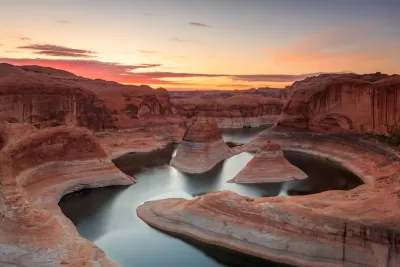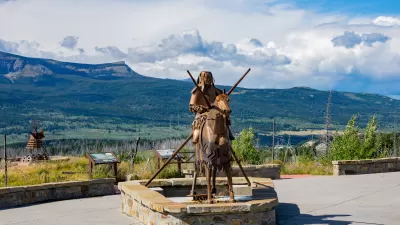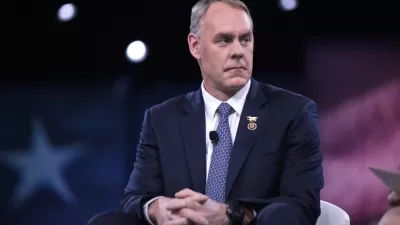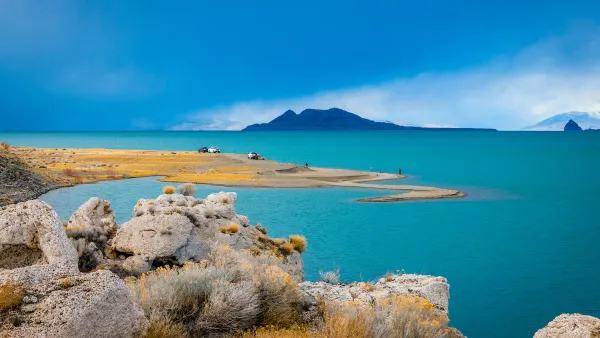Newly obtained documents reveal the extent of the state's efforts to strip protections from federal lands around the United States.

Pacific Standard's Jimmy Tobias reports on new insights into the depth of Utah's "anti-public lands agenda."
A 2016 document recently obtained from Governor Herbert's Public Lands Policy Coordinating Office outlines 15 pages of "top objectives" for federal lands, primarily falling under one broad category: deregulation. That document was apparently part of a "master list" of similar objectives being compiled by a conservative think tank to influence policymakers, Tobias writes, noting the influence wielded by conservative Utahn lawmakers in the arena of federal land regulations.
"Utah Congressman Rob Bishop is chair of the House Natural Resources Committee, a position from which he regularly inveighs against conservation laws like the Endangered Species Act, the Antiquities Act, and the Wilderness Act. Then there's Utah Senator Orrin Hatch, who was a key player in convincing President Donald Trump to review and ultimately roll back some national monument designations in the American West. Utah's other senator, Mike Lee, is in the mix too. He recently likened federal lands to the "royal forests" of European kings and called for their effective abolition."
That influence is particularly important, Tobias stresses, because many of the proposals in the document look beyond state borders to impact federal lands across the entire country.
"Among other things, the document … proposes the rollback of a suite of land, wildlife, and climate protections, including the Obama administration's now-defunct moratorium on new federal land coal leasing. And it calls on Congress to amend laws like the Federal Land Policy and Management Act and the National Environmental Policy Act to give states much greater control over federal land management."
FULL STORY: INSIDE UTAH'S ANTI-PUBLIC LANDS AGENDA

Planetizen Federal Action Tracker
A weekly monitor of how Trump’s orders and actions are impacting planners and planning in America.

Restaurant Patios Were a Pandemic Win — Why Were They so Hard to Keep?
Social distancing requirements and changes in travel patterns prompted cities to pilot new uses for street and sidewalk space. Then it got complicated.

Maui's Vacation Rental Debate Turns Ugly
Verbal attacks, misinformation campaigns and fistfights plague a high-stakes debate to convert thousands of vacation rentals into long-term housing.

In California Battle of Housing vs. Environment, Housing Just Won
A new state law significantly limits the power of CEQA, an environmental review law that served as a powerful tool for blocking new development.

Boulder Eliminates Parking Minimums Citywide
Officials estimate the cost of building a single underground parking space at up to $100,000.

Orange County, Florida Adopts Largest US “Sprawl Repair” Code
The ‘Orange Code’ seeks to rectify decades of sprawl-inducing, car-oriented development.
Urban Design for Planners 1: Software Tools
This six-course series explores essential urban design concepts using open source software and equips planners with the tools they need to participate fully in the urban design process.
Planning for Universal Design
Learn the tools for implementing Universal Design in planning regulations.
Heyer Gruel & Associates PA
JM Goldson LLC
Custer County Colorado
City of Camden Redevelopment Agency
City of Astoria
Transportation Research & Education Center (TREC) at Portland State University
Jefferson Parish Government
Camden Redevelopment Agency
City of Claremont





























